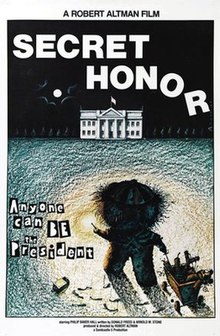
Roger Joseph Ebert was an American film critic, film historian, journalist, essayist, screenwriter, and author. He was a film critic for the Chicago Sun-Times from 1967 until his death in 2013. Ebert was known for his intimate, Midwestern writing style and critical views informed by values of populism and humanism. Writing in a prose style intended to be entertaining and direct, he made sophisticated cinematic and analytical ideas more accessible to non-specialist audiences. Ebert frequently endorsed foreign and independent films he believed would be appreciated by mainstream viewers, championing filmmakers like Werner Herzog and Errol Morris. In 1975, Ebert became the first film critic to win the Pulitzer Prize for Criticism. Neil Steinberg of the Chicago Sun-Times said Ebert "was without question the nation's most prominent and influential film critic," and Kenneth Turan of the Los Angeles Times called him "the best-known film critic in America."

Eugene Kal Siskel was an American film critic and journalist for the Chicago Tribune. He is best known for co-hosting various movie review television series with colleague Roger Ebert.

Quintet is a 1979 American post-apocalyptic science fiction film directed by Robert Altman. It stars Paul Newman, Brigitte Fossey, Bibi Andersson, Fernando Rey, Vittorio Gassman and Nina Van Pallandt.

Day for Night is a 1973 romantic comedy-drama film co-written and directed by François Truffaut. The metafictional and self-reflexive film chronicles the troubled production of a melodrama, and the various personal and professional challenges of the cast and crew. It stars Jacqueline Bisset, Valentina Cortese, Jean-Pierre Aumont, Dani, Alexandra Stewart, Jean-Pierre Léaud and Truffaut himself.

Short Cuts is a 1993 American comedy-drama film, directed by Robert Altman. Filmed from a screenplay by Altman and Frank Barhydt, it is inspired by nine short stories and a poem by Raymond Carver. The film has a Los Angeles setting, which is substituted for the Pacific Northwest backdrop of Carver's stories. Short Cuts traces the actions of 22 principal characters, both in parallel and at occasional loose points of connection. The role of chance and luck is central to the film, and many of the stories concern death and infidelity.
Gene Siskel and Roger Ebert, collectively known as Siskel & Ebert, were American film critics known for their partnership on television lasting from 1975 to Siskel's death in 1999.

Come Back to the 5 & Dime, Jimmy Dean, Jimmy Dean is a 1982 comedy-drama film and an adaptation of Ed Graczyk's 1976 play. The Broadway and screen versions were directed by Robert Altman, and stars Sandy Dennis, Cher, Mark Patton, Karen Black, Sudie Bond, and Kathy Bates.

A Wedding is a 1978 American satirical comedy-drama film directed by Robert Altman, with an ensemble cast that includes Desi Arnaz, Jr., Carol Burnett, Paul Dooley, Vittorio Gassman, Mia Farrow, Lillian Gish, Geraldine Chaplin, Howard Duff, Nina Van Pallandt, Amy Stryker, and Pat McCormick. The story is told in typical Altman style, with multiple plots and overlapping humorous dialogue.

Raw Deal is a 1986 American action film directed by John Irvin, from a story of Sergio Leone's screenwriters Luciano Vincenzoni and Sergio Donati, and starring Arnold Schwarzenegger, Kathryn Harrold, Darren McGavin and Sam Wanamaker. The film was released in North America on June 6, 1986. The film tells the story of an elderly and embittered high-ranking FBI chief, Harry Shannon, who wants to get revenge against a Mafia organization and sends a former FBI agent and now small-town sheriff Mark Kaminski to destroy the organization from the inside. The film received negative reviews, grossing $16.2 million in the US against its $8–10 million budget.

Philip Baker Hall was an American character actor. He is known for his collaborations with Paul Thomas Anderson, including Hard Eight (1996), Boogie Nights (1997), and Magnolia (1999). He also starred in leading roles in films, such as Secret Honor (1984) and Duck (2005). Hall had supporting roles in many films, including Midnight Run (1988), Say Anything... (1989), The Truman Show (1998), The Talented Mr. Ripley (1999), The Insider (1999), The Contender (2000), Bruce Almighty (2003), Dogville (2003), Zodiac (2007), 50/50 (2011), and Argo (2012). He received an Independent Spirit Award nomination for Best Male Lead for his role in Hard Eight and two Screen Actors Guild Award nominations for Outstanding Performance by an Ensemble Cast in a Motion Picture for Boogie Nights and Magnolia.

The Fury is a 1978 American supernatural horror thriller film directed by Brian De Palma and starring Kirk Douglas, John Cassavetes, Amy Irving, Carrie Snodgress, Charles Durning, and Andrew Stevens. The screenplay by John Farris was based on his 1976 novel of the same name.
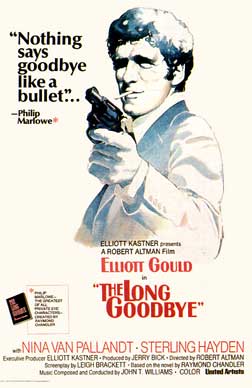
The Long Goodbye is a 1973 American satirical neo-noir film directed by Robert Altman and written by Leigh Brackett, based on Raymond Chandler's 1953 novel. The film stars Elliott Gould as Philip Marlowe and features Sterling Hayden, Nina Van Pallandt, Jim Bouton, Mark Rydell, and an early, uncredited appearance by Arnold Schwarzenegger.

Husbands is a 1970 American comedy-drama film written and directed by John Cassavetes. It stars Ben Gazzara, Peter Falk, and Cassavetes as three middle class men in the throes of a midlife crisis following the death of a close friend.
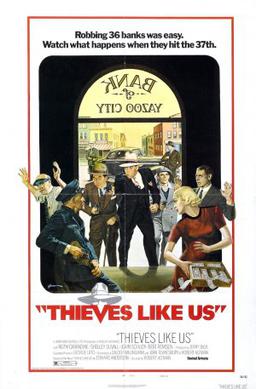
Thieves Like Us is a 1974 American crime film, set in the United States of the 1930s. It was directed by Robert Altman and starred Keith Carradine and Shelley Duvall. The film was based on the novel of the same name by Edward Anderson, which also supplied source material for the 1948 film They Live by Night, directed by Nicholas Ray. The Altman film sticks much closer to the book. The supporting cast includes Louise Fletcher and Tom Skerritt.
Slither is a 1973 American comedy thriller film directed by Howard Zieff and starring James Caan. Caan plays an ex-convict, one of several people trying to find a stash of stolen money. Peter Boyle and Sally Kellerman co-star. Slither was the first screenplay by W.D. Richter.

Sneak Previews is an American film review show that ran for over two decades on Public Broadcasting Service (PBS). It was created by WTTW, a PBS member station in Chicago, Illinois. It premiered on November 26, 1975 as a monthly local-only show called Opening Soon...at a Theater Near You and was renamed in 1977 to Sneak Previews and it became a biweekly show in 1978 airing nationally on PBS. It grew to prominence with a review-conversation-banter format between opinionated film critics, notably for a time, Roger Ebert and Gene Siskel. By 1980, it was a weekly series airing on over 180 stations, and it was the highest rated weekly entertainment series in the history of public broadcasting. The show's final broadcast was on October 4, 1996.
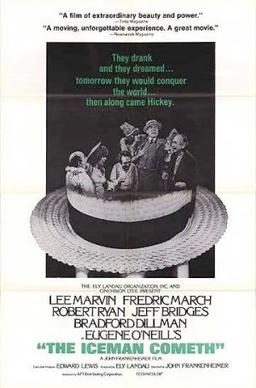
The Iceman Cometh is a 1973 American drama film directed by John Frankenheimer. The screenplay, written by Thomas Quinn Curtiss, is based on Eugene O'Neill's 1946 play of the same name. The film was produced by Ely Landau for the American Film Theatre, which from 1973 to 1975 presented thirteen film adaptations of noted plays.
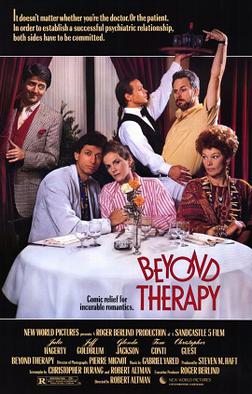
Beyond Therapy is a 1987 American comedy film written and directed by Robert Altman, based on the 1981 play of the same name by Christopher Durang. It stars Julie Hagerty, Jeff Goldblum, Glenda Jackson, Tom Conti, and Christopher Guest.
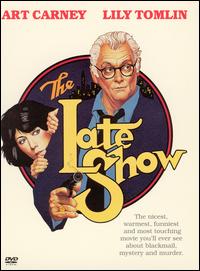
The Late Show is a 1977 American neo-noir mystery film written and directed by Robert Benton and produced by Robert Altman. It stars Art Carney, Lily Tomlin, Bill Macy, Eugene Roche, and Joanna Cassidy.
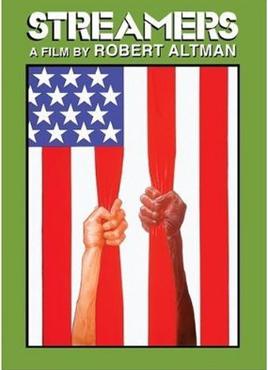
Streamers is a 1983 film adapted by David Rabe from his play of the same name. The film was directed by Robert Altman and produced by Robert Michael Geisler and John Roberdeau, who later produced The Thin Red Line. The cast includes David Alan Grier as Roger, Mitchell Lichtenstein as Richie, Matthew Modine as Billy, Michael Wright as Carlyle, George Dzundza as Cokes, and Guy Boyd as Rooney.
